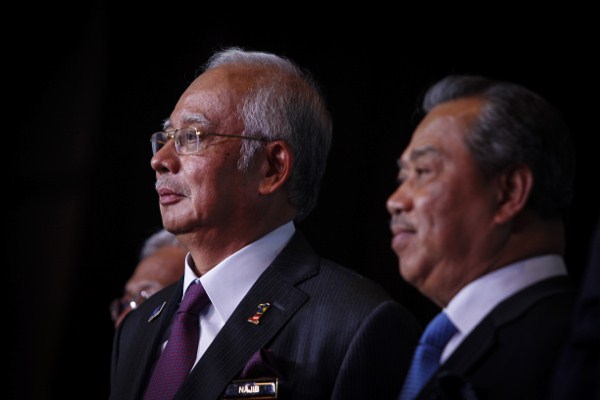Since the end of 2014, Malaysians, normally living in one of the most stable countries in Asia, have witnessed an extraordinary political spectacle. Although the same ruling coalition has run Malaysia since independence five decades ago, 89-year-old former Prime Minister Mahathir Mohamad recently launched a fusillade of public attacks on the current prime minister, Najib Razak, his longtime political protégé. In articles and in speeches, Mahathir has accused Najib of allowing vast sums to disappear from 1MDB, a Malaysian sovereign wealth fund; of evading questions about the suspicious murder of a Mongolian translator who allegedly had information about corruption in Malaysia’s Defense Ministry; and of living a suspiciously lavish lifestyle despite decades as a public servant, among other charges. In early April, Mahathir publicly called for Najib to step down as prime minister.
Najib has fought back hard, enlisting support from leading figures of the United Malays National Organization (UMNO), the dominant party in the governing coalition, while also taking to television to rebut Mahathir’s charges and using large public rallies to show that he retains public support.
While Najib fights off Mahathir and his supporters, Najib’s government has launched one of the largest attacks on dissent in modern Malaysian history. In February, opposition leader Anwar Ibrahim was jailed for five years on sodomy charges, after a trial that Human Rights Watch called “politically motivated proceedings under an abusive and archaic law.” After giving a speech in parliament protesting her father’s treatment, Anwar’s daughter, herself an MP, was arrested and charged with sedition, even though in Malaysia politicians are supposed to be immune from such charges while speaking in the legislature. Meanwhile, the Malaysian security forces have in recent months arrested at least 35 civil society activists, journalists and opposition politicians on charges of sedition, a move that Amnesty International last month called “troubling signs of an escalating crackdown on freedom of expression and assembly.”

